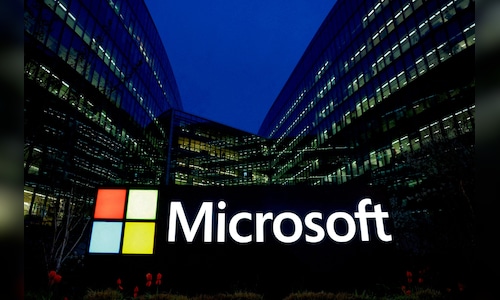The partnership is integrated within Microsoft Research India’s new AI Innovation Network, aimed at translating research into practical applications. “Our collaboration with Physics Wallah exemplifies this initiative,” stated Venkat Padmanabhan, Managing Director of Microsoft Research India. “We consider education as a significant frontier for AI innovation. This partnership is grounded in a mutual goal to make high-quality learning accessible, affordable, and customized for every student.”
Physics Wallah primarily serves students in tier II and III cities and has been incorporating Microsoft’s models into its platform. Vineet Govil, Chief Technology and Product Officer at Physics Wallah, mentioned that the objective is to bridge the educational divide where there is a shortage of trained teachers. “By utilizing Microsoft’s AI capabilities, PW has sought to enhance its Alakh AI Suite and develop technology-driven tools that address students’ queries, summarize similar questions, and assist teachers during live sessions,” he explained.
The platform’s Smart Doubt Engine, developed in partnership with Microsoft, allows students to ask questions during live classes and receive immediate AI-generated replies. AI Grader automates the grading of written responses, while AI Guru serves as a virtual tutor, offering personalized assistance for text, image, and audio-based inquiries. “It also delivers customized answers and relevant video snippets linked to specific lecture sections,” Govil added.
Microsoft Research has been instrumental in enhancing the reasoning capabilities of the AI models powering these tools. “We’re collaborating to create education-specific large language models that can surpass generic AI responses and provide accurate, contextual, and step-by-step solutions to complex questions, particularly in mathematics and science,” Padmanabhan noted.
These models are engineered to facilitate human-like problem solving. Microsoft has compiled a dataset of 150,000 math reasoning examples, introducing techniques to generate structured, step-by-step solutions. The models are being trained with synthetic data generated through a self-optimizing learning framework that employs Monte Carlo Tree Search to identify and refine optimal reasoning paths.
“The outcome is a more interpretable output that aids students not only in finding correct answers but also in understanding the processes to reach them,” Padmanabhan emphasized. This has proven particularly beneficial in Physics Wallah’s educational setting, where students gain from clear, guided explanations.
To enhance the precision of its models, Microsoft has also created PromptWizard—an automated framework that streamlines prompt engineering. Physics Wallah, which has implemented this tool, reported a 10% increase in both student satisfaction and model accuracy.
In addition to educational tools, Physics Wallah has introduced AI Sahayak, which assists in course management, monitors student progress, and develops revision plans. “It customizes learning journeys for students using data generated from previous enrollees in similar courses,” Govil stated.
Both organizations view AI as a catalyst for scaling personalized education across India. “We are developing AI systems with capabilities akin to human tutors,” Padmanabhan remarked. “They can interpret ambiguous questions, solve problems in a methodical manner, and adapt according to each student’s progress.”
This collaboration aligns with Microsoft’s broader strategy to foster AI development and skill enhancement in India, positioning education as a primary use case. The company’s larger ambitions include expanding its datacentre infrastructure and training 10 million individuals in AI skills by 2030.
However, for Microsoft and Physics Wallah, the immediate priority remains to assist students in learning more effectively through AI. “These tools are designed to support and augment teachers by broadening their reach,” Padmanabhan concluded. “In the long run, innovations like this can enable all students—irrespective of their location—to compete for opportunities on an equal basis.”



